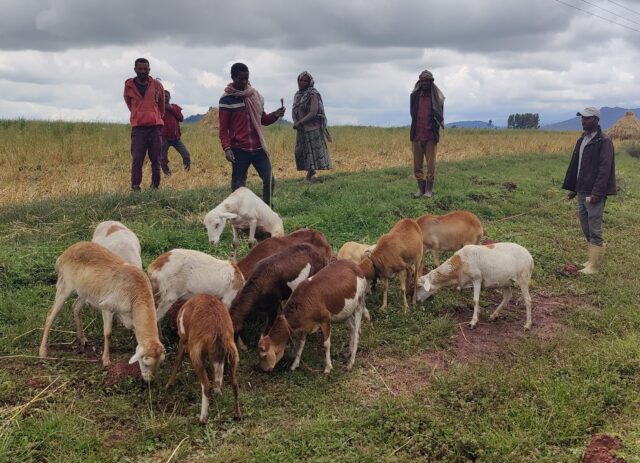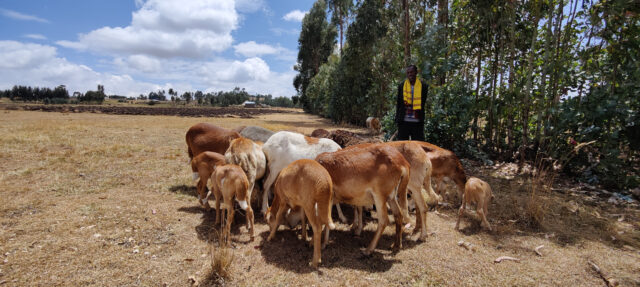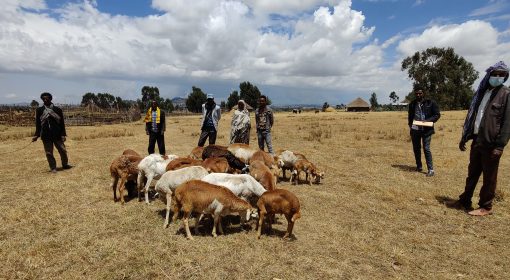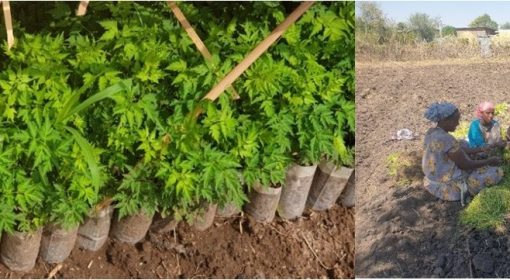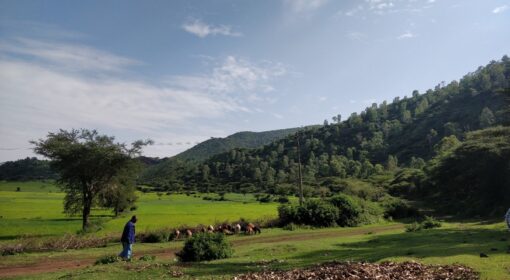Author: Girma Senbeta
The implementation of the revolving fund scheme under the Green Future Farming (GFF) project in Middle Awash has been highly successful. Launched nearly two years ago, its aim was to support Small and Micro Enterprises (SMEs) engaged in small ruminant husbandry, providing them with an alternative source of livelihood and/or income source. Targeting members of SMEs actively involved in soil and water conservation efforts in the Biskelo-Worerso Watershed, the scheme was initiated with an initial capital of ETB 450.000 (around 7.400 Euro). An indirect effect of the revolving fund is that it is an extra incentive and reward for people to participate in sustainable watershed management activities. Seventy individuals, mainly unemployed or with low incomes, were selected based on their participation in the watershed management campaign. They were required to organize themselves as an SME group for a business type fully based on their own interest, gaining legal recognition to enhance accountability and facilitate access to loans from established financial institutions when necessary.
Various governmental offices at the woreda level, including cooperatives, agriculture, women and children affairs, youth and sports, labor and skill development, played a crucial role in the success of the revolving fund. They offered comprehensive training to SMEs, equipping them with essential business skills, providing diligent monitoring in the implementation of the scheme, and technical assistance in small ruminant husbandry.
With the allocated budget, the SMEs procured a total of 171 goats and 60 sheep. Despite some unfortunate animal deaths, there were 262 goats and 107 at the end of the program. By the end of the first year, after full loan repayment, each beneficiary had acquired at least six goats or sheep. Out of the initial 70 beneficiaries, only two were unable to repay the loan. This was mainly due to unfortunate circumstances such as death or chronic illness. Remarkably, the vast majority (97.14%) repaid their loans diligently, enabling funds to redirect support to the second batch of SMEs.
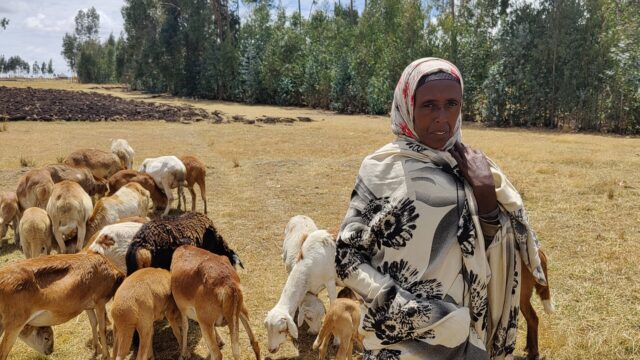
The loan repayment period was one year, with two installments: 50% due within the first six months and the remaining 50% at year-end. Currently, the revolving fund supports a second round of 60 beneficiaries, procuring 40 sheep and 108 goats. Inflation has impacted the local market, reducing the number of animals acquired. The agriculture office will manage the fund after the project ends, with the aforementioned sectors supporting its sustainable and proper use.
During our visit, we had the privilege of hearing inspiring testimonies from individuals who have directly benefited from the GFF project. One woman shared her remarkable story of how the revolving fund had a positive impact on her life. Despite not having a husband, she was raising seven children while relying on farming and caring for her neighbors’ oxen, sharing the earnings with them. Through the project, she received three sheep from the revolving fund, and through careful management, she now has a flock of seven sheep. Although she sold one sheep to repay the loan, she expressed deep gratitude for the opportunity given to low-income individuals like herself. She shared a poignant quote with us, saying, “When the owner shouts, the neighbours listen,” illustrating her willingness to promptly repay the loan without hesitation for the benefit of her neighbours.
Another testimony we encountered was shared by a DA representative in Sire. He highlighted the positive impact of the GFF project on the local community, particularly emphasizing the significance of goat rearing in their cultural and economic practices. Thanks to the project, an individual who previously had little or no income has now taken on the responsibility of caring for the goats provided to the community. This transformation has not only provided them with a sustainable source of income and economic stability but has also instilled a sense of purpose and hope for a brighter future.
In conclusion, the revolving fund scheme has demonstrated feasibility and success when executed wisely. Its positive impact on supporting SMEs, creating job opportunities and alternative livelihoods, and indirectly on fostering sustainable agricultural and watershed management practices is evident. It has potential replicability in other areas, projects, and programs such as Productive Safety Net (PSNP) and Climate Action through Landscape Management (CALM) with adjustment to local conditions. Therefore, this approach, which involves creating job opportunities or alternative livelihoods, promotes watershed management, benefiting communities in the process and in the long term through restoring the landscape.
